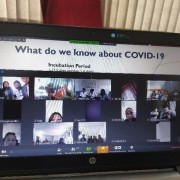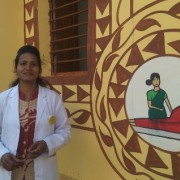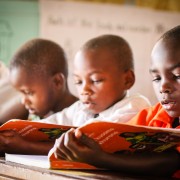Speeches Shim

As reports of the spread of the novel coronavirus began appearing in India, Annie Suchiang had her own fears and apprehensions. She manages the state program for community health workers, known in India as Accredited Social Health Activists (ASHAs), and is in charge of the Comprehensive Primary Healthcare (CPHC) Program in the far northeastern state of Meghalaya. One of her primary concerns was building the capacities of frontline health workers to face COVID-19, the new pandemic the world is still grappling to understand.

“This disease is so dangerous, everyone is getting infected and dying from it and nobody knows how to control it. When people ask me, I have no idea what to answer…”
According to Vineeta Ray, a Community Health Officer (CHO) posted at a Health and Wellness Center (HWC) in Madhya Pradesh India, this was her biggest worry. She had heard that cases were reported in her state but had been given no clear guidance on what she could do. As she is posted in a remote region of the state, she was particularly worried about accessing accurate information quickly. Health and Wellness Centers (HWC), part of the Government of India’s Ayushman Bharat universal health coverage plan, provide comprehensive primary health care services and each HWC serves a population of 5,000 people.

When disasters, conflicts and other crises occur, women and children often suffer the most. Children can experience violence, abuse, neglect and exploitation, all of which can have a devastating effect on their lives. And far too often, the structures and systems meant to protect children against abuse are rendered less effective in times of emergency. On March 31, 2020, non-essential services in Uganda, including schools, were closed to help prevent the spread of COVID-19. Now, 15 million children are at home, with basic care needs normally met by schools falling to families. And while such lockdown measures have helped to contain the spread of COVID-19 in Uganda, reports of child rights violations have increased.
Critical medical supplies vital to Timor-Leste’s fight against the novel coronavirus pandemic are moving faster from ship to shore and into the hands of health workers, thanks to efforts by the United States to fast-track customs clearance of COVID-19 material.
Today, much of our work occurs under the umbrella of addressing fragility and fostering resilience. Through targeted, multi-sectoral assistance we aim to prevent crises before they occur; stabilize those that do; and create conditions that serve as bulwarks to external shocks. Of course, the challenges presented by the COVID-19 pandemic have brought even greater urgency to the imperative to address global fragility.

Comment
Make a general inquiry or suggest an improvement.